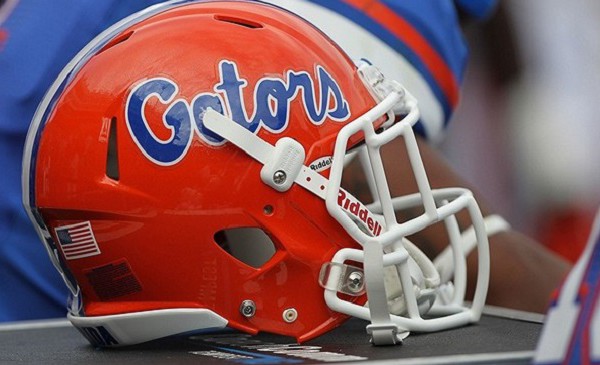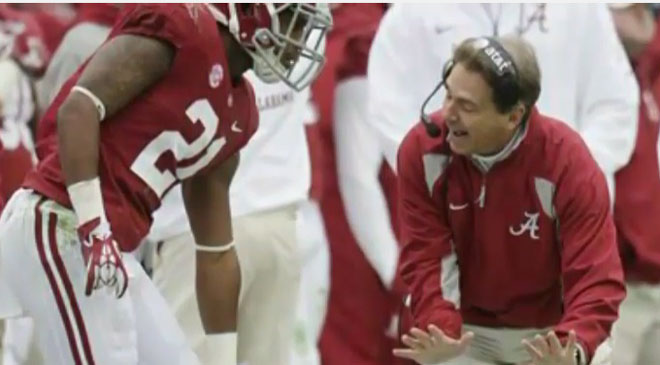A graduate transfer embodies the very mantra the NCAA engrained into the masses for a generation: Going pro in everything but sports.
It’s technically true. The vast majority of college athletes will not play professionally; including high Div. I football players, only a fraction of whom will play in the NFL. Earning a degree — hopefully in an area of study that will net job offers upon graduation — should be the mission of every athletic program on campus.
That restrictions on a graduate transfer like former Alabama defensive back Maurice Smith exist at all is asinine, and counterproductive to the NCAA’s own proclaimed mission. To that end, the recent flap involving Smith’s intended move to Georgia undermines the NCAA.
Not that Georgia football is an innocent. Former Alabama defensive coordinator and current Bulldogs head coach Kirby Smart imposed rigorous restrictions on A.J. Turman. Amid that situation, and before Georgia relaxed its limitations, I advocated for NCAA-mandated, universal policies regarding transfers.
The same is necessary for a graduate transfer, and the only option is pretty damn clear: Let them go wherever they please. If that happens to be within conference, too bad. The athlete’s fulfilled his end of the agreement made upon signing his National Letter of Intent by earning his degree.
Moreover, the NLI doesn’t function as an employee contract. Interpreting it as such opens up a whole new topic that coaches like Nick Saban and Kirby Smart would probably rather not have.
Alabama granted Smith his release this week, leaving the decision up to the SEC. The conference’s initial statement reads ominously.
“As part of the SEC waiver process, a due diligence procedure ensures that pertinent information from the involved parties is gathered. This information is gathered for the purpose of a thoughtful and appropriate consideration of the particular facts associated with each case. The intent is for the waiver process to be handled in an efficient but deliberate manner, so the timeline for resolution of a waiver request varies with each unique situation.
“The SEC does not provide waivers of SEC rules absent circumstances that demonstrate a clear reason for granting an exception to those rules. Each waiver request is reviewed on a case by case basis.”
This cryptic support of limitations isn’t shocking; not when conference coaches are outspoken in their support of restrictions.
“I just think it opens up a box that you don’t necessarily wanna dive in to,” Arkansas head coach Bret Bielema said.
The irony here is that Bielema should have pleaded the Fifth. This general sentiment ranks as some of the more damning, self-incriminating evidence that top-level football players are employees, hired to win games, rather than students working toward a degree in exchange for their services to the athletic program.
The decision shouldn’t be left up to the conference, anymore than it should individual programs. One reason is that the leagues are already starting to conflict in their approaches. Take the Pac-12.
In 2015, Cal athletic director Michael Williams placed no restriction on graduate transfer and defensive end Brennan Scarlett. Scarlett moved across the Bay Area to Stanford — Cal’s rival — where he played an integral role on the Cardinal’s Pac-12 and Rose Bowl-winning season.
Cal issued restrictions on Cedric Dozier in January — a practice I inherently disagree with — but those restrictions were lifted the moment he received his degree in the spring. He later transferred to Kansas State.
Finally received my official release from Cal. Surprisingly it looks like I WILL NOT be playing in the PAC-12. pic.twitter.com/FJCkfJyhH5
— Cedric Dozier (@CedricDozier) January 6, 2016
Stanford followed a similar policy with running back Barry Sanders Jr., now at Oklahoma State.
Another Cal transfer, linebacker Michael Barton, is exhausting his eligibility this season at Arizona.
“He’s a good football player, great young man, and he got into graduate school,” Arizona head coach Rich Rodriguez said of Barton at last month’s Pac-12 media days. The last point is the key: part of the graduate transfer process requires a player to gain acceptance to grad school.
Barton isn’t the first high-profile, graduate transfer linebacker to land at Arizona since Rodriguez arrived. If he plays, that’s another story.
Former Akron standout and Mid-American All-Conference selection Brian Wagner came to Arizona in 2012, but never played a down. He retired shortly before the season, but remained at UA as a post-grad student in the biostatistics program.
This is precisely what the NCAA should be about: getting a degree through sports, and continuing their education through the game. That profession in something other than sports means a lot more than the one Saturday on which his former team might play his new team.
Besides, if one graduate transfer means the difference in winning the conference and not, it’s more the coach failing to do his job than it is the player.



